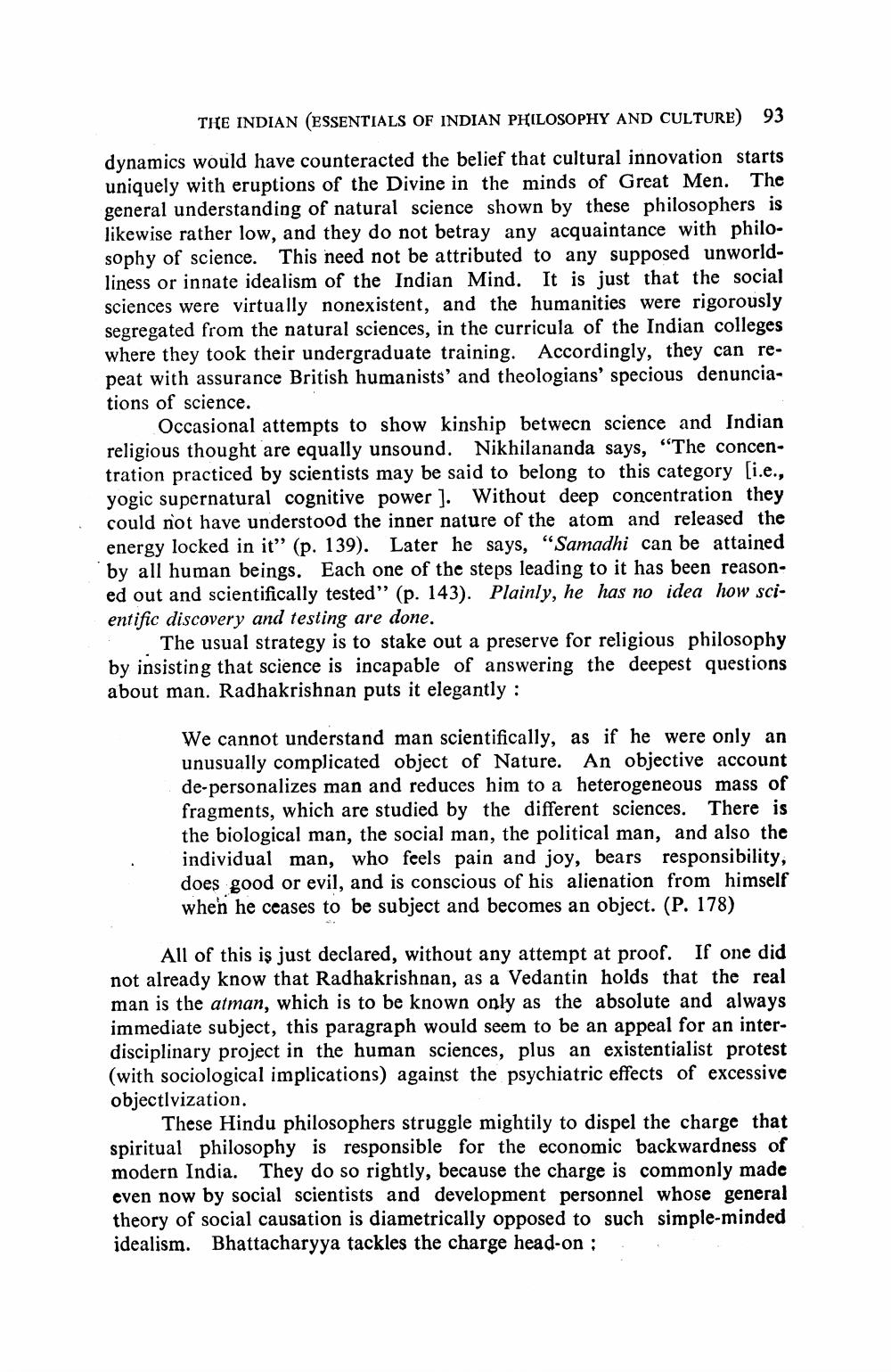Book Title: Indian Mind Essentials Of Indian Philosophy And Culture Author(s): Richard H Robinson Publisher: Richard H Robinson View full book textPage 6
________________ and the Itiny suppo THE INDIAN (ESSENTIALS OF INDIAN PHILOSOPHY AND CULTURE) 93 dynamics would have counteracted the belief that cultural innovation starts uniquely with eruptions of the Divine in the minds of Great Men. The general understanding of natural science shown by these philosophers is likewise rather low, and they do not betray any acquaintance with philosophy of science. This need not be attributed to any supposed unworldliness or innate idealism of the Indian Mind. It is just that the social sciences were virtually nonexistent, and the humanities were rigorously segregated from the natural sciences, in the curricula of the Indian colleges where they took their undergraduate training. Accordingly, they can repeat with assurance British humanists' and theologians' specious denunciations of science. Occasional attempts to show kinship betwecn science and Indian religious thought are equally unsound. Nikhilananda says, "The concentration practiced by scientists may be said to belong to this category [i.e., yogic supernatural cognitive power]. Without deep concentration they could not have understood the inner nature of the atom and released the energy locked in it” (p. 139). Later he says, "Samadhi can be attained by all human beings. Each one of the steps leading to it has been reasoned out and scientifically tested” (p. 143). Plainly, he has no idea how scientific discovery and testing are done. The usual strategy is to stake out a preserve for religious philosophy by insisting that science is incapable of answering the deepest questions about man. Radhakrishnan puts it elegantly : We cannot understand man scientifically, as if he were only an unusually complicated object of Nature. An objective account de-personalizes man and reduces him to a heterogeneous mass of fragments, which are studied by the different sciences. There is the biological man, the social man, the political man, and also the individual man, who feels pain and joy, bears responsibility, does good or evil, and is conscious of his alienation from himself when he ceases to be subject and becomes an object. (P. 178) All of this is just declared, without any attempt at proof. If one did not already know that Radhakrishnan, as a Vedantin holds that the real man is the atman, which is to be known only as the absolute and always immediate subject, this paragraph would seem to be an appeal for an interdisciplinary project in the human sciences, plus an existentialist protest (with sociological implications) against the psychiatric effects of excessive objectlvization. These Hindu philosophers struggle mightily to dispel the charge that spiritual philosophy is responsible for the economic backwardness of modern India. They do so rightly, because the charge is commonly made even now by social scientists and development personnel whose general theory of social causation is diametrically opposed to such simple-minded idealism. Bhattacharyya tackles the charge head-on :Page Navigation
1 ... 4 5 6 7 8 9 10 11
